Natalie Liang

Vitto Resnick
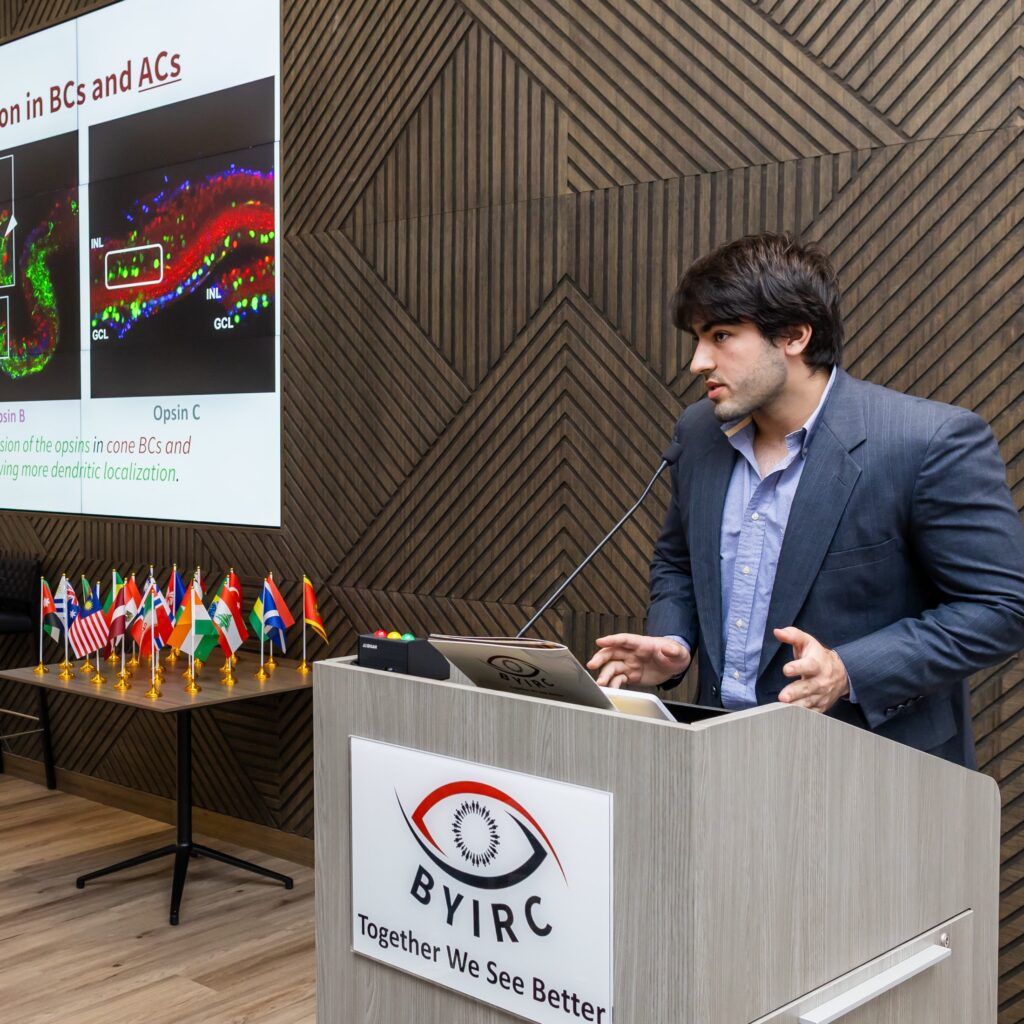
Kodi Nguyen
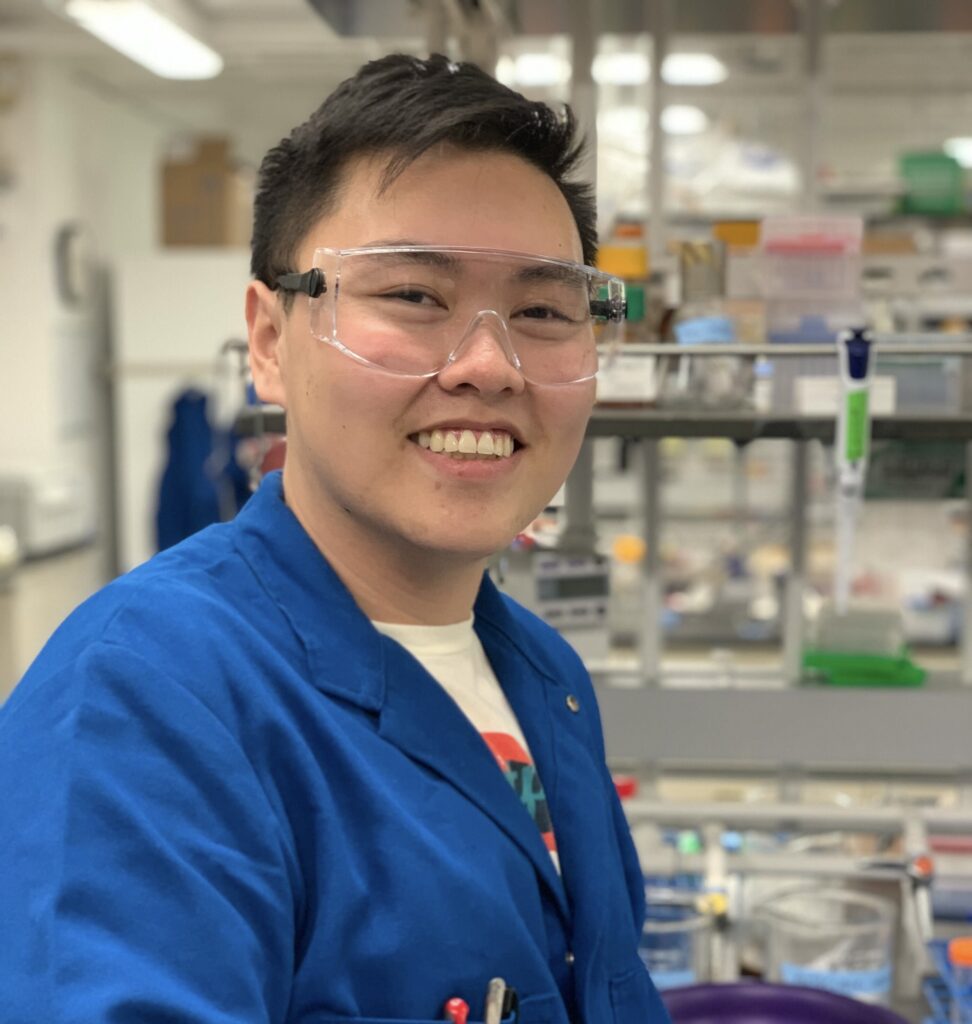
Ameneh Gharabi
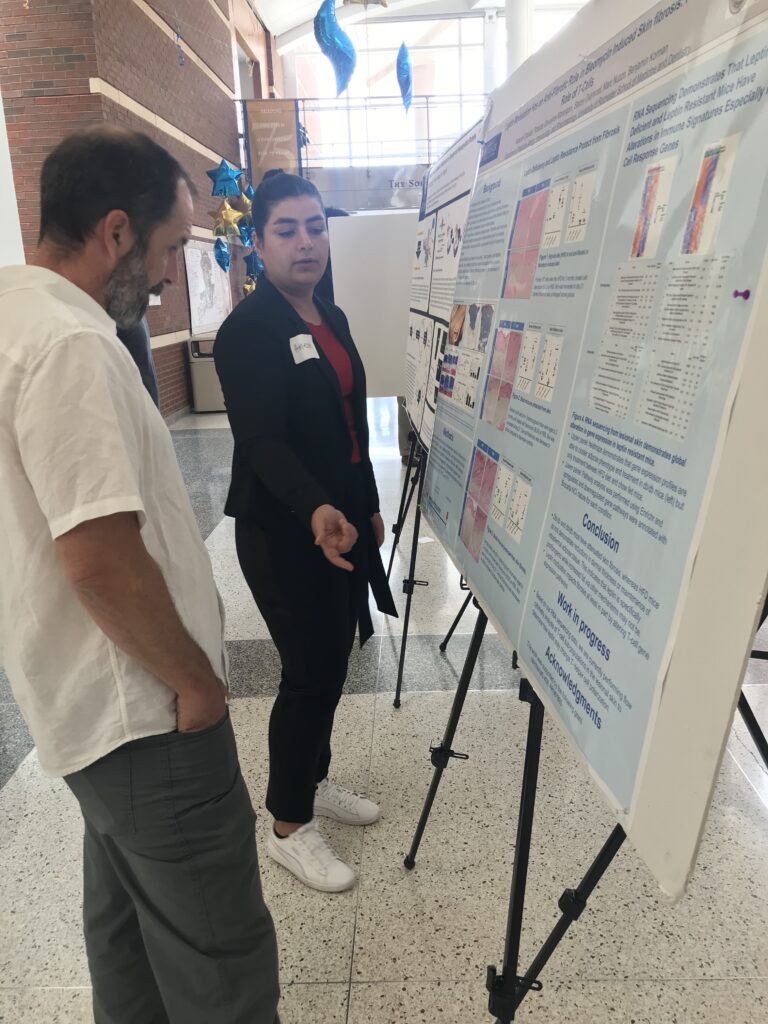
Shayla Nguyen Eslampour

May Wang
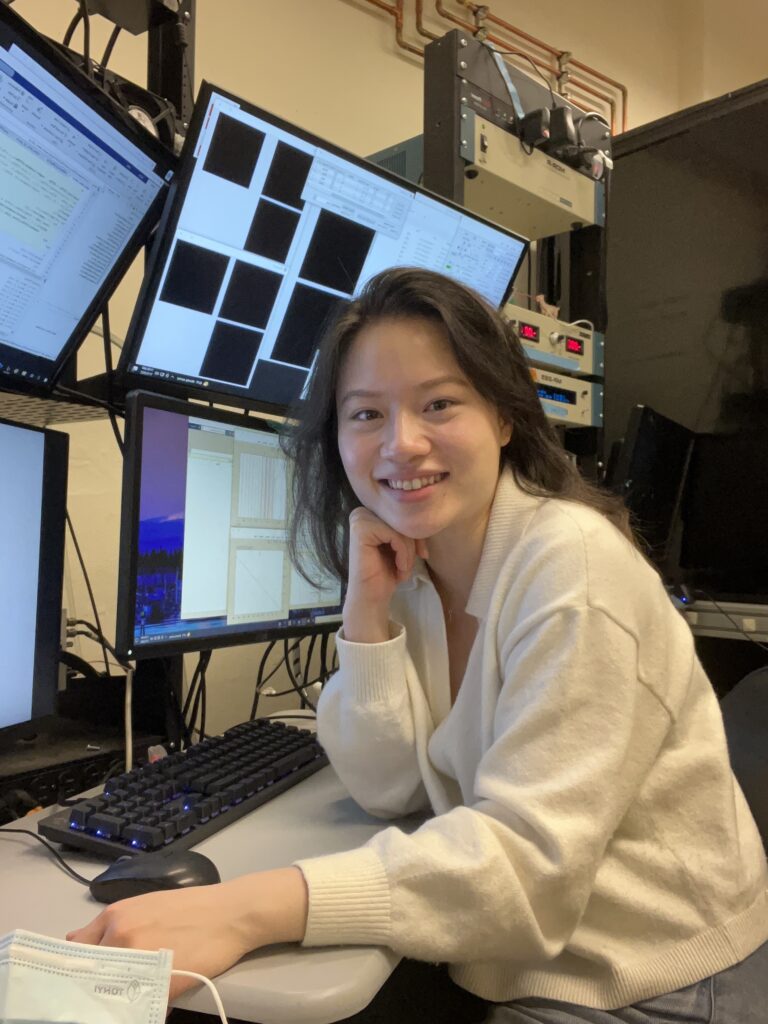
It has been difficult to isolate the neural activity linking a particular visual stimulus to the behavior it triggers. This may be due to variability in neural activity caused by factors such as pupil size fluctuations, and research has shown that pupil dilation reduces neural activity variability. May hypothesizes that pupil dilation prior to presentation of visual stimuli will improve the behavioral response of mice performing a visual contrast detection task. Using two-photon calcium imaging, May will examine the neural activity of mice performing the task while recording their pupils. […]
Selina Pacheco
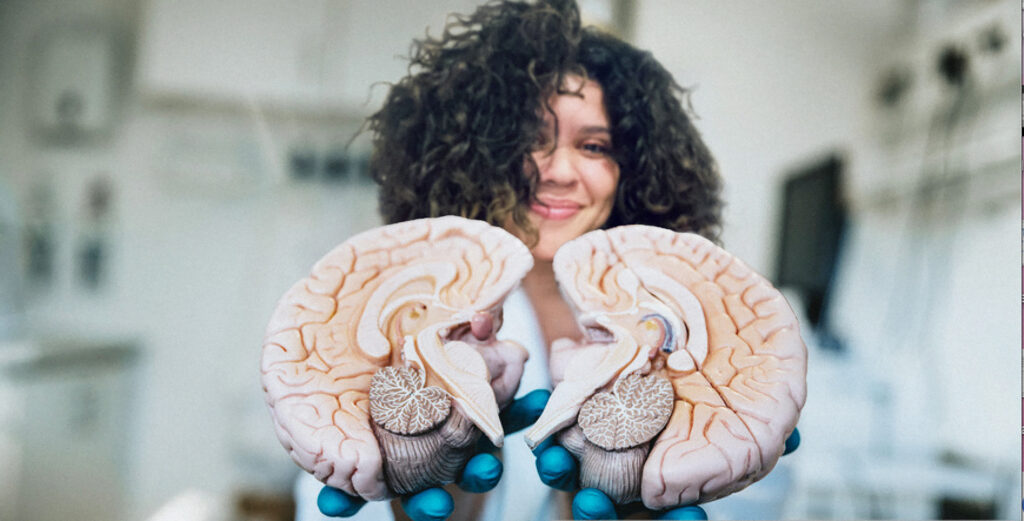
Childhood family income is a powerful predictor of academic achievement and mental health. Here, we ask whether children living in poverty who beat the odds by succeeding academically are subsequently protected from–or more at risk for–internalizing disorders. Prior research indicates that high-performing children in poverty tend to have higher coupling between lateral frontoparietal network (LFPN; supports executive functions), and Default Mode Network (DMN; supports internally-directed thought); this is in contrast to research with high-income children, for whom this pattern of connectivity is linked to worse academic performance, and importantly, more […]
Ihab Elmasri
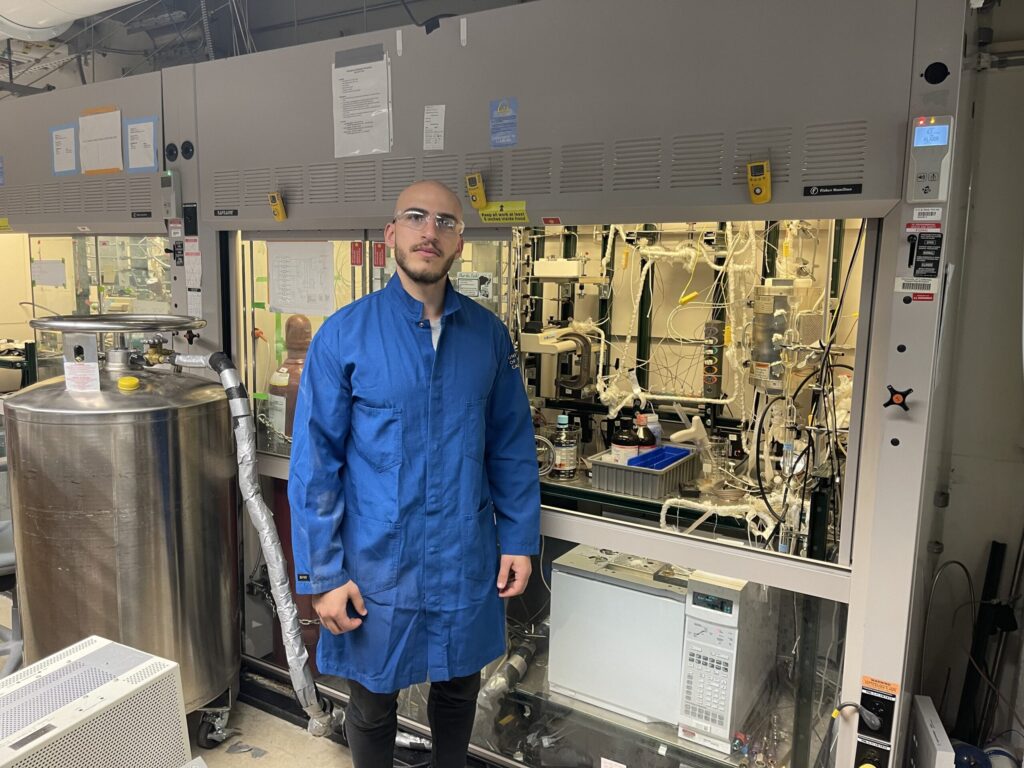
Current processes for the production of partially oxidized alkanes constitute a large portion of the energy consumption of the petrochemical industry. The conversion of low cost and readily available alkane feedstocks to more useful unsaturated hydrocarbons and oxygenates while making use of cheap oxidants such as oxygen can circumvent the need to rely on the energy intensive and environmentally harmful processes currently implemented. Through the use of a Cu-MFI catalyst, Ihab plans on tackling this issue by synthesizing a collection of copper catalysts with various copper loadings. Varying the number […]
Sushil Bohara
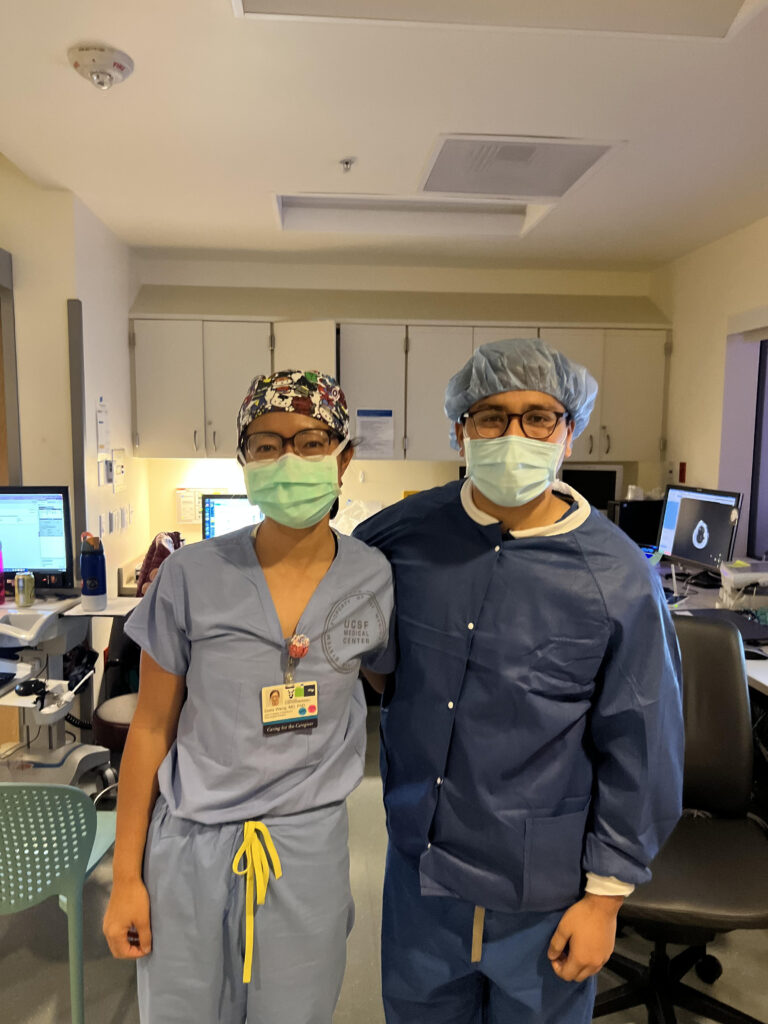
Obsessive-Compulsive Disorder (OCD) is a common psychiatric disorder characterized by intrusive anxiety-provoking thoughts and repetitive behaviors. Deep brain stimulation (DBS), an implantable neuromodulation therapy that can effectively modulate neural circuits in the brain using electrical stimulation, has emerged as an approach to treat severe cases of OCD. To address the current need for reliable biomarkers of OCD symptom response to DBS to inform the optimal brain targets for OCD patients, Sushil will evaluate functional MRI data acquired simultaneously to DBS in a cohort of patients with medication-refractory OCD to comprehensively […]
Verina Atallah
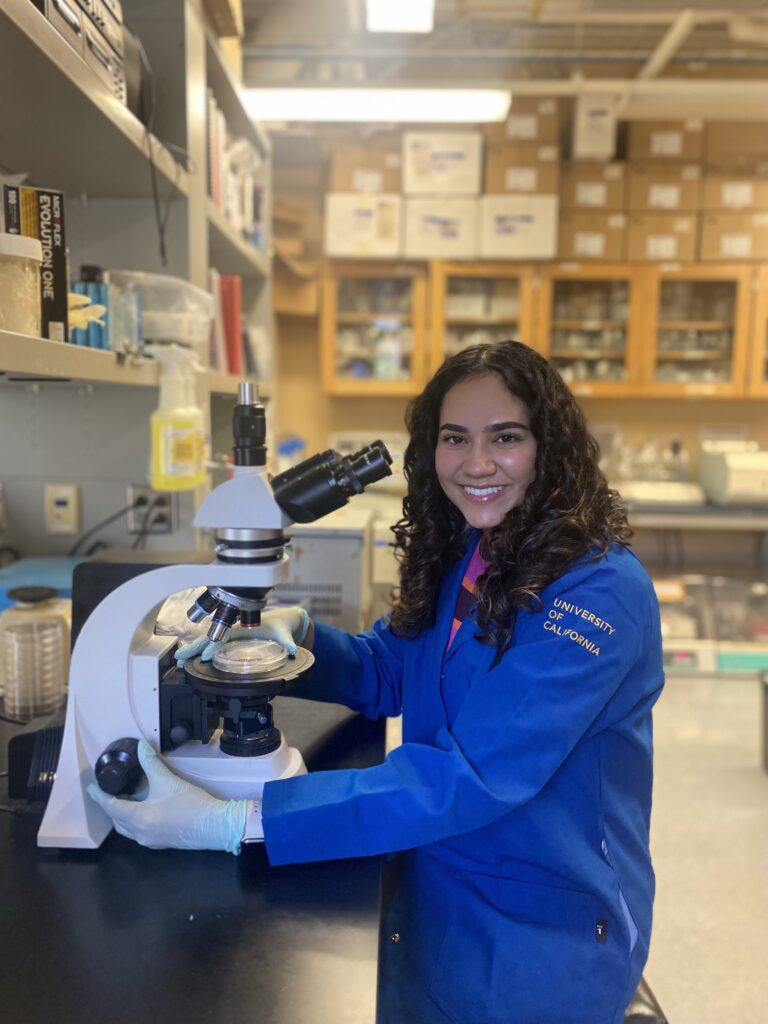
Human Cytomegalovirus (HCMV) is an important viral cause of disease globally especially in immunocompromised persons. Current medications to treat HCMV infections (Ganciclovir) have a poor safety profile, and risk the potential to select for drug resistance. Antibodies and immune cells confer partial protection against HCMV; however, the contribution of other immune defenses such as the complement system remain poorly understood. In this study, Verina will employ a yeast-two-hybrid screen using an HCMV gene library to identify protein-protein interactions with human C1qBP, a multifunctional intracellular complement protein. Following identification, Verina will […]